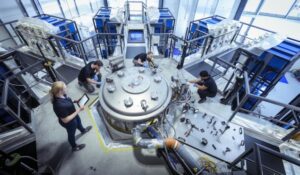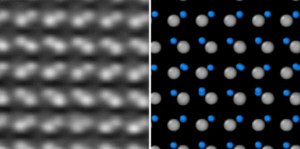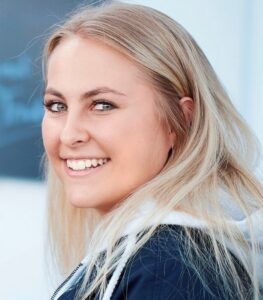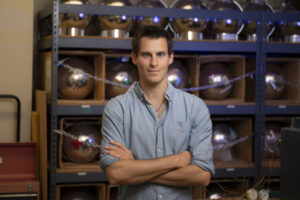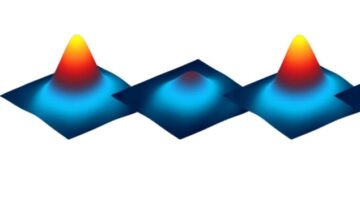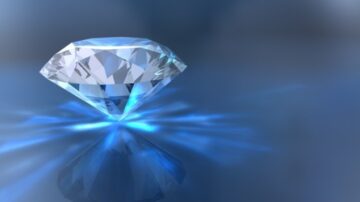Ian Randall reviews Taxi From Another Planet: Conversations with Drivers about Life in the Universe by Charles Cockell
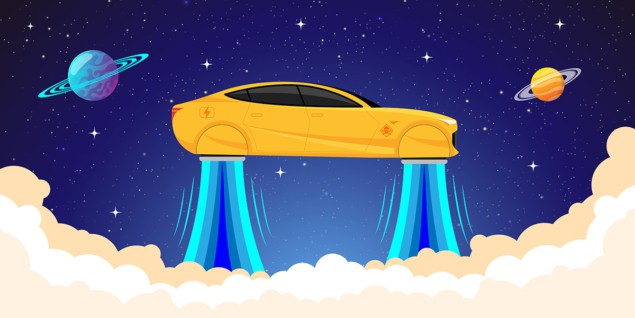
A recurring trope in the works of Agatha Christie is that some seemingly ordinary people are – by position or profession – accorded a view of society that offers unique insights into human nature. Among the crime writer’s roster of fictional detectives are the village staple Miss Marple, the gossip-loving Mr Satterthwaite and the expert statistician Mr Parker Pyne. But I’ve always wondered why Christie never created a sleuth based on a taxi driver.
As the University of Edinburgh astrobiologist Charles Cockrell explains in Taxi From Another Planet: Conversations with Drivers about Life in the Universe, such people have a unique view of the universe. “Taxi drivers are linked into the collective mind of our civilization in a way that very few of us are,” he says. “They feel the pulse of human thought. Not many other people boast continuous day-to-day exposure to such a wealth of human experience.”
Charles Cockell takes the reader on an engaging tour through leading topics and questions in astrobiology through imaginary conversations with taxi drivers
Drawing on this notion – but also flipping it on its head – the book takes the reader on an engaging tour of leading topics and questions in astrobiology through a series of imaginary conversations with taxi drivers. The idea for this framing device, Cockell explains, came on a taxi ride from King’s Cross Station to Downing Street, where he was due to attend a prime-ministerial reception in honour of the British astronaut Tim Peake. The imminent meeting prompted his cabbie to muse: “Are there alien taxi drivers?”
The resulting discussion, held while crawling through the London gridlock, led Cockell to touch on everything from the origins of life to the development of the wheel. “After that day, I began to use taxi journeys as an opportunity to ask, talk and think about life in the universe,” Cockell explains. “Unencumbered by a cart-load of academic knowledge, technical detail and the conservatism bred by uncertainty,” he says, “taxi drivers have clear perspectives on the sorts of questions that most people find significant.”
For Cockell, such discussions are not only “deeply interesting”, but also capable of offering “an entirely new point of view”. Tapping into these perspectives, Cockell flies engagingly through a wide range of questions in astrobiology. Why do we need oxygen to breathe? Might we ever one day visit, colonize or completely move to Mars? How might we go about communicating with alien lifeforms?
While these questions are diverse, the book is not without its leitmotifs. One recurring theme is the Fermi paradox, which essentially wonders why we haven’t found alien civilizations given they’re so likely to exist. Cockell approaches the quandary from a variety of different perspectives. What’s the risk of Martian invasion? Might the cosmos be completely devoid of extraterrestrial life. Is the Earth actually being preserved as an exhibit in an “alien zoo”?
For this reviewer, arguably the most interesting sections of the book are those that depart from “obvious” astrobiological concerns and stray instead into more philosophical areas. Cockell tackles, for example, the question of whether or not it would be ethical to kill alien microbes in a future Mars base, just as we disinfect buildings here on Earth. I also enjoyed his discussion of why space colonies are inherently vulnerable to despots and tyrants.
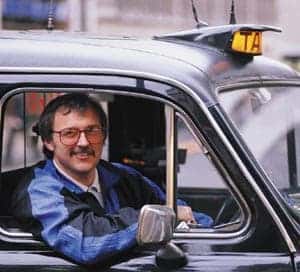
Physics for taxi-drivers
Perhaps most delightful about Cockell’s book is its light, engaging writing style. At times, it brings to mind the whimsy of Douglas Adams, talking about the Great Oxygenation Event (when the Earth’s oceans and skies suddenly rose up with oxygen) as “microbial insouciance” and of tentacled cabbies and the merits of the scientific method to the High Priest Zinglebrod, Ruler of the Sixth World.
While reading Taxi from Another Planet, however, I must confess wondering how authentic the reported dialogues between Cockell and his erudite drivers really are. In my experience, many cabbies are affable, engaging and kind but I’m not sure how easy it would be to involve them in esoteric scientific and philosophical discussions of the kind reported here. (I also doubt I could afford as many cab rides as Cockell can.) Still, even if it is a conceit, it is certainly compelling; and there are hints I might be being overly cynical.
In one of the later chapters, for example, the author discusses whether the red planet would be a pleasant place to live. Cockell admits to pouncing on one cabbie who’d made “the terrible mistake, so common among taxi drivers, of offering me an inroad to talking about Mars”. It amuses me to think of Cockell’s photo and details being pinned up in dispatchers’ offices across the country with the word “menace” stamped beneath.
One driver asserts he is fine with extraterrestrial life, just as long as the Martians don’t come to Leicester and take all the jobs
The chapter on the risk of an alien invasion, meanwhile, has a ring of depressing (if comical) authenticity to it, with one driver asserting that he is fine with extraterrestrial life, just so long as the Martians don’t come to Leicester and take all the jobs. While the establishment of a Klingon bridgehead in the Jobcentres of the East Midlands may seem risible, there is nevertheless merit in being reminded that the public’s priorities may be unexpected when it comes to engagement with science.
In short, perhaps we would all benefit from engaging more seriously with taxi drivers. Just remember to give a good tip!
- 2022 Harvard University Press 304pp £21.95/$26.95hb
- SEO Powered Content & PR Distribution. Get Amplified Today.
- PlatoData.Network Vertical Generative Ai. Empower Yourself. Access Here.
- PlatoAiStream. Web3 Intelligence. Knowledge Amplified. Access Here.
- PlatoESG. Automotive / EVs, Carbon, CleanTech, Energy, Environment, Solar, Waste Management. Access Here.
- BlockOffsets. Modernizing Environmental Offset Ownership. Access Here.
- Source: https://physicsworld.com/a/i-once-had-an-astrobiologist-in-the-back-of-my-cab/
- :has
- :is
- :not
- :where
- $UP
- a
- About
- AC
- academic
- across
- actually
- alien
- All
- also
- always
- among
- an
- and
- Another
- approaches
- ARE
- areas
- arguably
- AS
- Asserting
- astronaut
- At
- attend
- Authentic
- authenticity
- author
- back
- base
- based
- BE
- began
- being
- beneath
- benefit
- between
- book
- BREATHE
- Brings
- British
- but
- by
- came
- CAN
- capable
- car
- certainly
- Chapter
- Charles
- Civilization
- clear
- CO
- Collective
- come
- comes
- Common
- communicating
- compelling
- completely
- Concerns
- continuous
- conversations
- Cosmos
- could
- country
- created
- Crime
- Cross
- day
- day-to-day
- delightful
- detail
- details
- Development
- device
- different
- discussion
- discussions
- disinfect
- diverse
- do
- Dont
- doubt
- Downing
- driver
- drivers
- due
- earth
- East
- easy
- ed
- engagement
- engaging
- entirely
- essentially
- establishment
- ethical
- Even
- EVER
- everything
- example
- exhibit
- exist
- experience
- Experiences
- expert
- Explains
- Exposure
- feel
- few
- fictional
- field
- Find
- fine
- flying
- For
- found
- from
- future
- Give
- given
- Go
- good
- had
- harvard
- harvard university
- Have
- he
- head
- Held
- helped
- here
- High
- hints
- his
- How
- However
- HTML
- HTTPS
- human
- Human Experience
- i
- idea
- if
- image
- imaginary
- imminent
- in
- information
- inherently
- insights
- instead
- interesting
- into
- invasion
- involve
- issue
- IT
- ITS
- Jobs
- Journeys
- jpg
- just
- Kill
- Kind
- knowledge
- later
- leading
- Led
- Life
- light
- likely
- linked
- live
- London
- Long
- made
- many
- mars
- max-width
- May..
- me
- Meanwhile
- meeting
- Merit
- merits
- method
- might
- mind
- mistake
- more
- most
- move
- MUSE
- must
- my
- Nature
- Need
- never
- Nevertheless
- New
- Notion
- of
- offering
- Offers
- offices
- on
- once
- ONE
- only
- Opportunity
- or
- ordinary
- Other
- our
- own
- Oxygen
- People
- perhaps
- perspectives
- photo
- Physics
- Physics World
- Place
- planet
- plato
- Plato Data Intelligence
- PlatoData
- Point
- position
- press
- profession
- pulse
- question
- Questions
- range
- Reader
- Reading
- really
- recurring
- Red
- remember
- Reported
- research
- resulting
- Ride
- Ring
- Risk
- ROSE
- roster
- says
- Science
- scientific
- sections
- seem
- seemingly
- Series
- seriously
- Short
- significant
- sixth
- skies
- Sleuth
- So
- Society
- some
- Space
- stamped
- staple
- station
- Still
- street
- style
- such
- sure
- Tackles
- Take
- takes
- Talk
- talking
- tapping
- Technical
- that
- The
- Them
- theme
- There.
- These
- think
- this
- those
- thought
- Through
- thumbnail
- times
- to
- Topics
- touch
- Tour
- true
- Uncertainty
- understanding
- Unexpected
- unique
- Universe
- university
- us
- use
- variety
- very
- View
- Village
- Visit
- Vulnerable
- Way..
- we
- Wealth
- Wheel
- when
- whether
- which
- while
- why
- wide
- Wide range
- Wikipedia
- with
- without
- wondering
- Word
- works
- world
- would
- writing
- zephyrnet


